Picchio dal Pozzo interview
Picchio dal Pozzo is considered as one of the top Italian expression of the ‘Canterbury Sound’. Paolo Griguolo formed them together with other three friends (Aldo De Scalzi, Giorgio Karaghiosoff and Andrea Beccari). Picchio dal Pozzo activity goes through the ’70s making concerts, founding music free-schools in underdeveloped areas of the town, working as cultural entertainers at the hometown’s mental hospital and a collaboration with Demetrio Stratos.
Where and when did you grow up? Was music a big part of your family life?
Paolo Griguolo: I was born in Genoa (Italy) in 1957. My father was a jazz collector, my mother loved dancing. I’d define the place where I lived a ‘resonating flat’.
When did you begin playing music? What was your first instrument? Who were your major influences?
I started at school playing flute and Orff instruments in the resident orchestra. We played mostly Baroque music (Bach, Corelli). When I was 12, I got a small guitar as a present and it was love at first sight. I started as self-taught applying the music theory I learned at school. Related to the instrument my major influences were John McLaughlin and Robert Fripp.
What bands were you with prior to the formation of Picchio dal Pozzo?
Picchio dal Pozzo has been my first band.
“The first album, ‘Picchio dal Pozzo’, was entirely composed in studio starting from some rough ideas.”
Can you elaborate on the formation of Picchio dal Pozzo?
The first members of the band were Aldo De Scalzi, Andrea Beccari, Giorgio Karaghiosoff and me. We were school mates since nursery school. Around 1971 we started to meet at StudioG, Aldo’s father recording studio. After homework we went to the place and assisted recording sessions; sometimes we also had the chance to play with the “adults’ instruments”. There we started to set up our first original music ideas. At that time we had a no-name band and no project for the future. In 1974 Grog, one of the StudioG labels, asked us to record an album. We said “Yes”, of course. In fact, we had no tunes ready. The first album, Picchio dal Pozzo, was entirely composed in studio starting from some rough ideas.
“Picchio dal Pozzo was the name of the main character.”
How did you decide to use the name “Picchio dal Pozzo”?
We had to find our name for the band when the job was already done and Grog needed evidently a band name for publishing the record. ‘Picchio dal Pozzo’ came out of a nonsense lyric written by Giorgio Karaghiosoff in form of collage. ‘Picchio dal Pozzo’ was the name of the main character.
Who were your major influences?
We were Frank Zappa fans. We listened to Gong, Gentle Giant, King Crimson, Soft Machine but also to classic authors like Stravinsky, Debussy, Satie and others. Fundamental has been our trip to London in 1974. There we assisted to the famous Drury Lane concert of Robert Wyatt on the 8th of September. When we got back to Italy, we decided to dedicate our record to ‘Roberto Viatti’, an italianized Robert Wyatt.
Aldo De Scalzi was brother of Vittorio De Scalzi, who co-founder Grog Records and Magma Records. What can you tell us about this label?
StudioG owned some labels like Grog, Magma and others. At that time a lot of Italian prog bands recorded at StudioG. We met them all also because, in the meantime, we worked in the studio as assistants, sound engineers and session musicians.
What’s the story behind your debut from 1976? Where did you record it?
As I said before, we practically lived in StudioG. So it came natural to record our first album there. Aldo and I spent the whole ’70s in this place and Picchio dal Pozzo had there its base. After 1976, some new musicians entered the band (Roberto Romani , Claudio Lugo, Aldo Di Marco) and some left (Giorgio Karaghiosoff and Andrea Beccari).
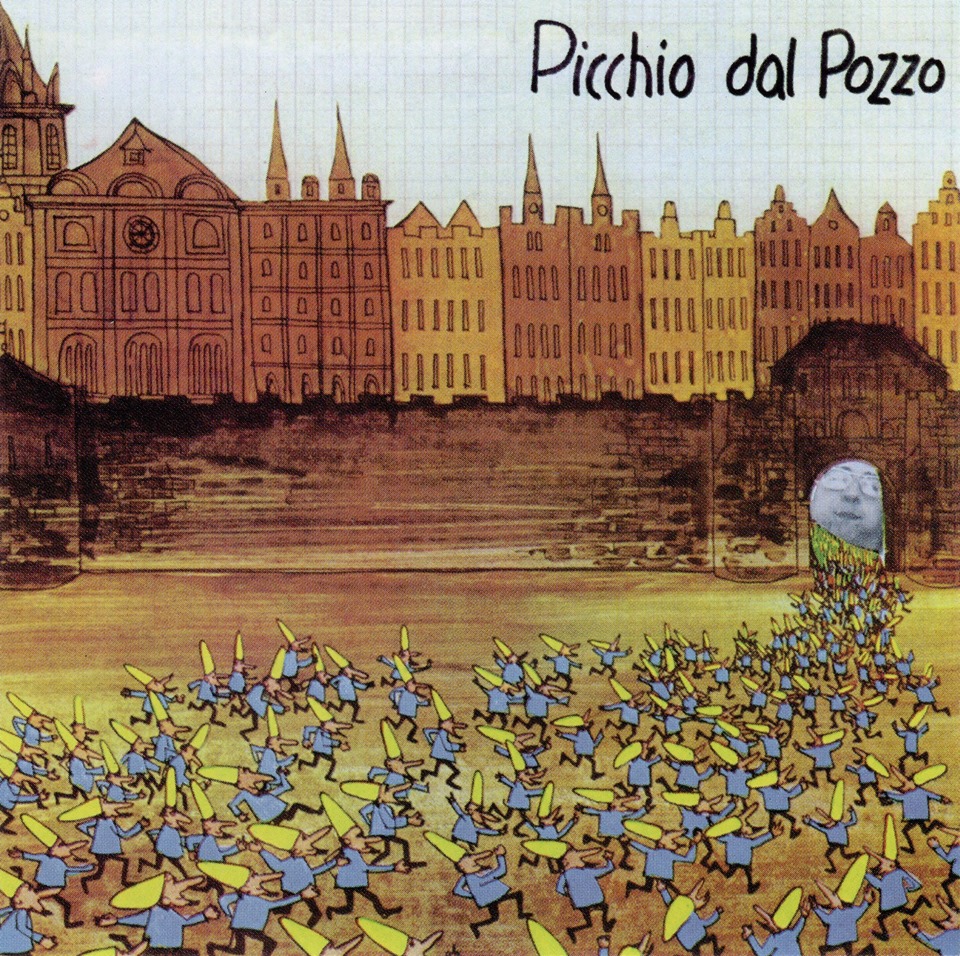
What kind of equipment did you use and who was the producer? How many hours did you spend in the studio?
The producer was StudioG of course. The equipment was a 16 tracks 3M machine with a 24 channel Galactron console and JBL Studio Monitors. I could say that from 1974 to 1980 StudioG has been a second home. We worked there, we had rehearsals with the band and we even spent our free time with our friends in this place. I’d say that we were a sort of commune at that time.
Please share your recollections of the sessions.
We spent days and nights in the studio and recorded during the available free spots. Meanwhile we composed the songs in the B-room next to the main control room. Often happened that the development of a tune came out during the recording, so we started everything again from the very beginning, a kind of ‘work in progress’.
Was there a certain concept behind the album?
No there was no concept. The only common thread was the love for experimenting and the foolish passion for Mel Brooks’ movies and the concept of nonsense.
How was the record distributed?
I don’t really remember. Grog and Magma had of course distributors for Italy, Europe and even US, but honestly we didn’t care about that. I admit that we weren’t interested in business point. We loved to enjoy and have fun with music. Perhaps this is the real main concept of Picchio till now.
How many copies were made?
As you can guess, I don’t know exactly…around 20.000 copies. A small number for those days.
Did you do any shows or even tour?
We had gigs mainly from 1977 to 1981. The material we played came from Camere Zimmer Rooms and Abbiamo tutti i suoi problemi. We had our own PA system and even a nightmare van!
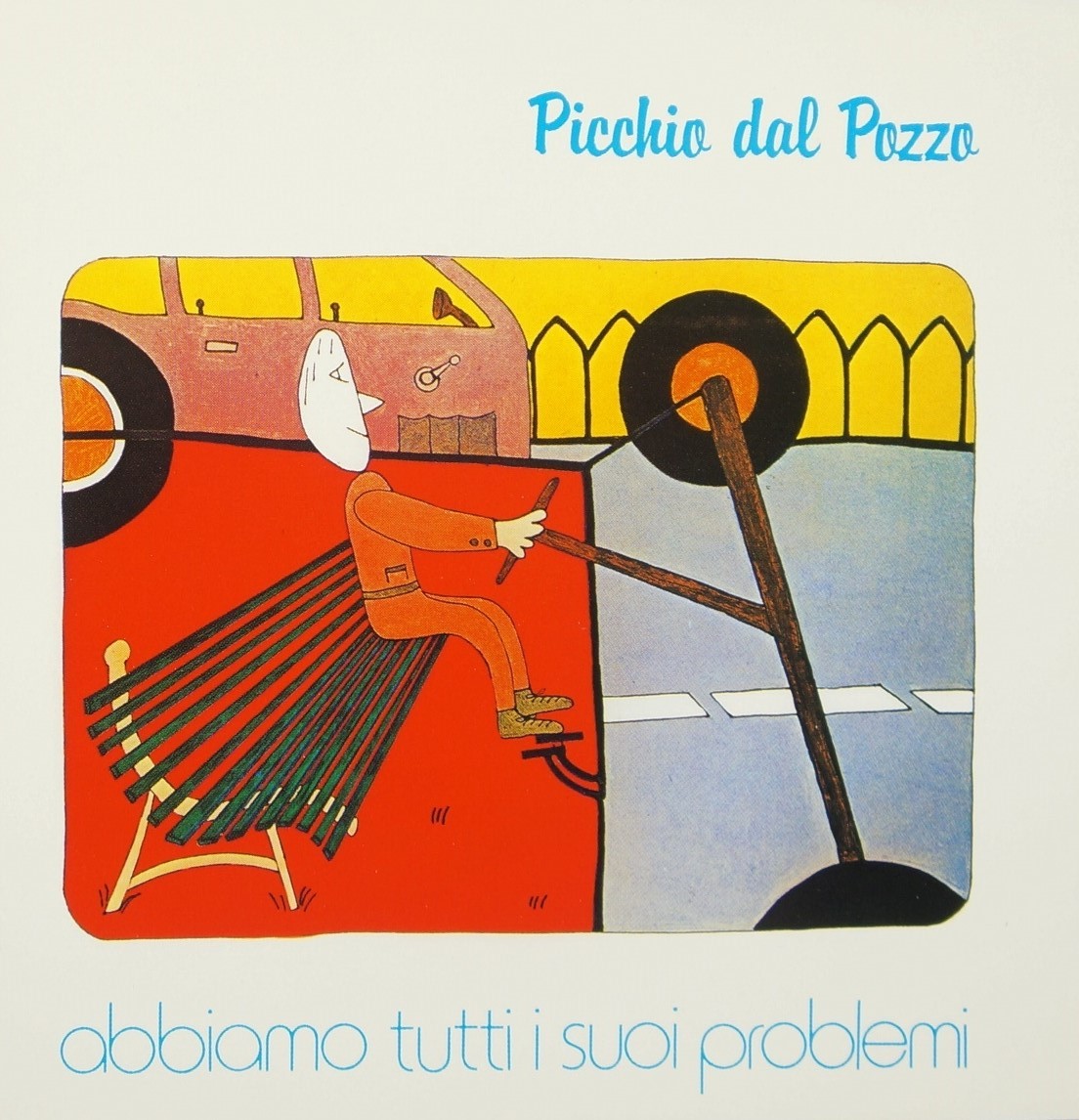
Abbiamo tutti i suoi problemi was released in 1980. Your sound changed quite a bit.
Well, in 1976 we met Henry Cow and in 1977 Demetrio Stratos, the vocalist of Area. They influenced us a lot in our way of making music. We were very socially engaged. We worked in free music schools in Genoa and as music animators in the Psychiatric Hospital. Demetrio has been our big sponsor with Orchestra, the label that published Abbiamo Tutti i suoi Problemi. I’m still in contact with Chris Cutler and Fred Frith, Demetrio is singing somewhere somehow, we don’t know since the 13th of June 1979. RIP.
Please share your recollections of the sessions.
The album was recorded at StudioG. We were playing live the material of the record before we entered the studio, so, in fact, everything happened flawlessly despite the technical difficulties of the music. Our record sessions at night have been a real happening for our friends, that met in studio to assist us with every kind of commodities. Thanks again to all of our friends.
“With Picchio on the contrary we went against styles”
Would you like to comment your playing technique? Give us some insights on developing it.
Never had a guitar lesson. I applied the music theory I studied at school to approach the instrument. Without digital means and internet, the only way to improve was listening to a record hundreds of times trying to understand what happened. I don’t know if I have a personal technique. The symmetry of fingering always amazed me. I find it helpful to remember parts and creative for soloing. With Picchio I have to play mostly section lines and phrases. Therefore the one point I had to solve was the sustain of my guitar sounds; the first, Robert Fripp has been very helpful and, why not, Santana too. I have to memorize a lot of stuff. I read and write music, but I’m not a first sight player; I prefer anyway to play by heart, it gives me the chance for a deeper emotional involvement. If you are a professional, of course you have to learn and master “styles” for working with music; with Picchio on the contrary we went against styles, because we were against conventions and this mental approach gave us the opportunity for experimenting. I’ve tried a lot of extreme setups: fretted neck (nearly useless without a bow), barbed wire (dangerous!) and clips between the strings (very interesting especially on acoustic guitar), different kinds of mutes, resonating paper sheets and other materials inside the body (works only with mic amping) and so on.
At the beginning I found very interesting the midi transducers even with huge latency. I still have a self made midi-guitar but I consider it more like a toy now.
What can you say about cover artwork used for your first two albums?
The cover of the first album was part of a calendar hanging at the wall of the office where we were asked to find a name for the band. I don’t remember which month it was. Heinrich Ellermann is the author. The cover of Abbiamo tutti i suoi problemi is a painting by Roberto Romani, one of the sax players of Picchio.
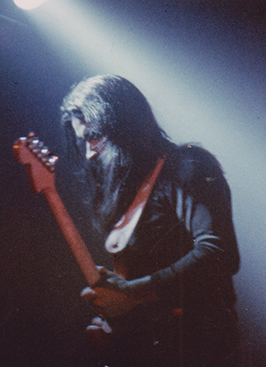
How would you comment the whole Rock in Opposition scene that was happening back then?
The ’70s have been really an amazing decade for music, not only for prog. But even in times of breaking rules and experimentation, music industry boycotted systematically a certain kind of avant-garde music, especially for the political and cultural message contained in it. That’s how RIO has to be invented. Picchio dal Pozzo has never been a “commercial” band, we didn’t care about that. Chris Cutler asked us to insert a song in a RIO compilation and we were honored by his request. Picchio dal Pozzo was invited to RIO festival 2014 in Tokyo and this has been the circle closing. Chris and I had a short conversation in the backstage before the gig. Both of us stated at one point: “Older but still on the road”.
I really enjoyed listening to your collection of previously unreleased tracks recorded between your first and second albums: Camere Zimmer Rooms.
I kept jealously the master of the album for almost 25 years. I spoke about that in an interview in 2000. Steve Feigenbaum of Cuneiform Records contacted me and finally the album got released.
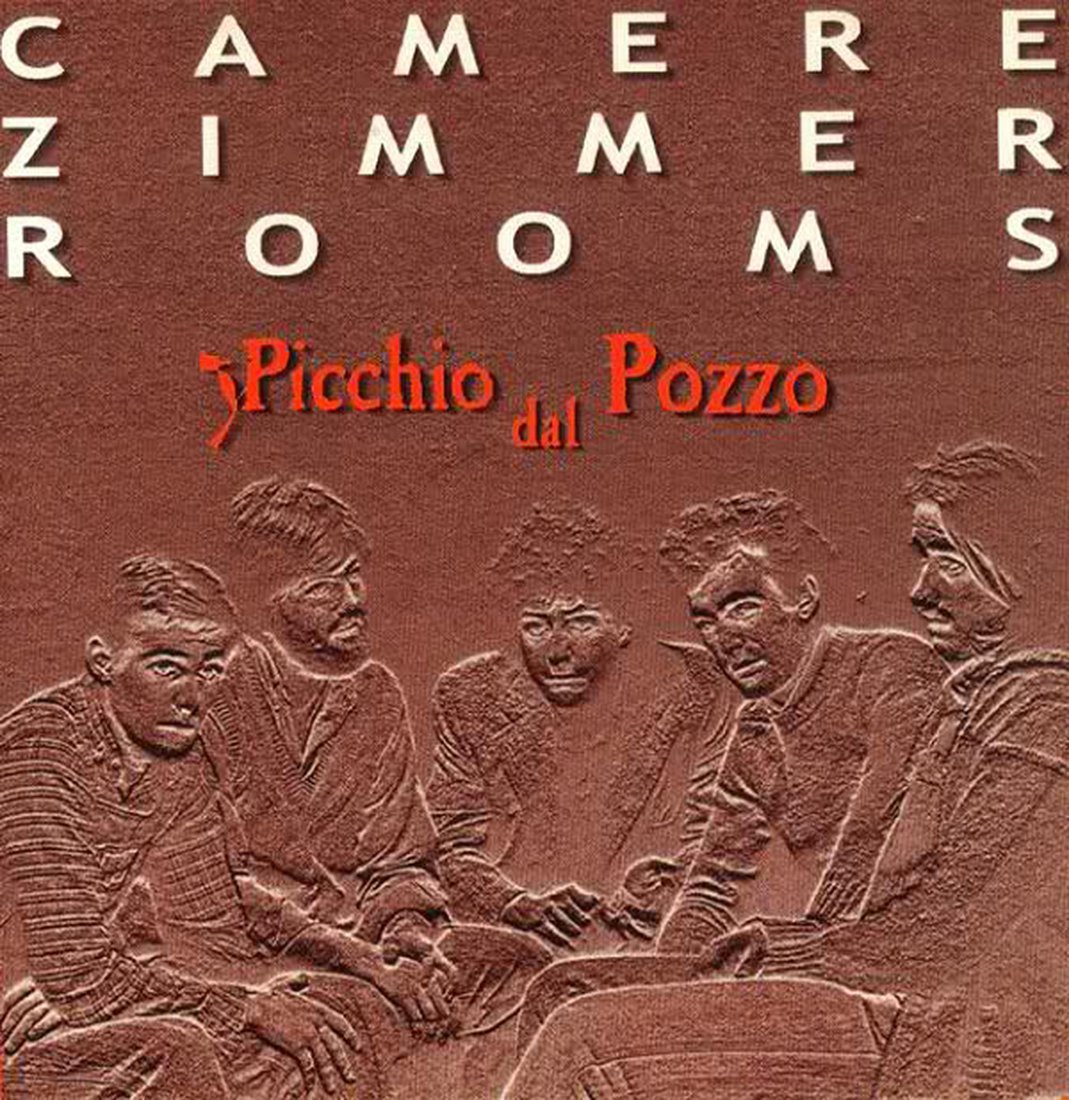
It was recorded at StudioG in Genoa in 1977. We played the tunes with our live setup in studio, just like a sort of main rehearsal for coming gigs. It was not intended to be the master of an album but only a final check for the concerts. The cover is a picture of these years made by a friend of us. Speaking about the content (lyrics), I think this is the most socially and politically engaged period of the band.
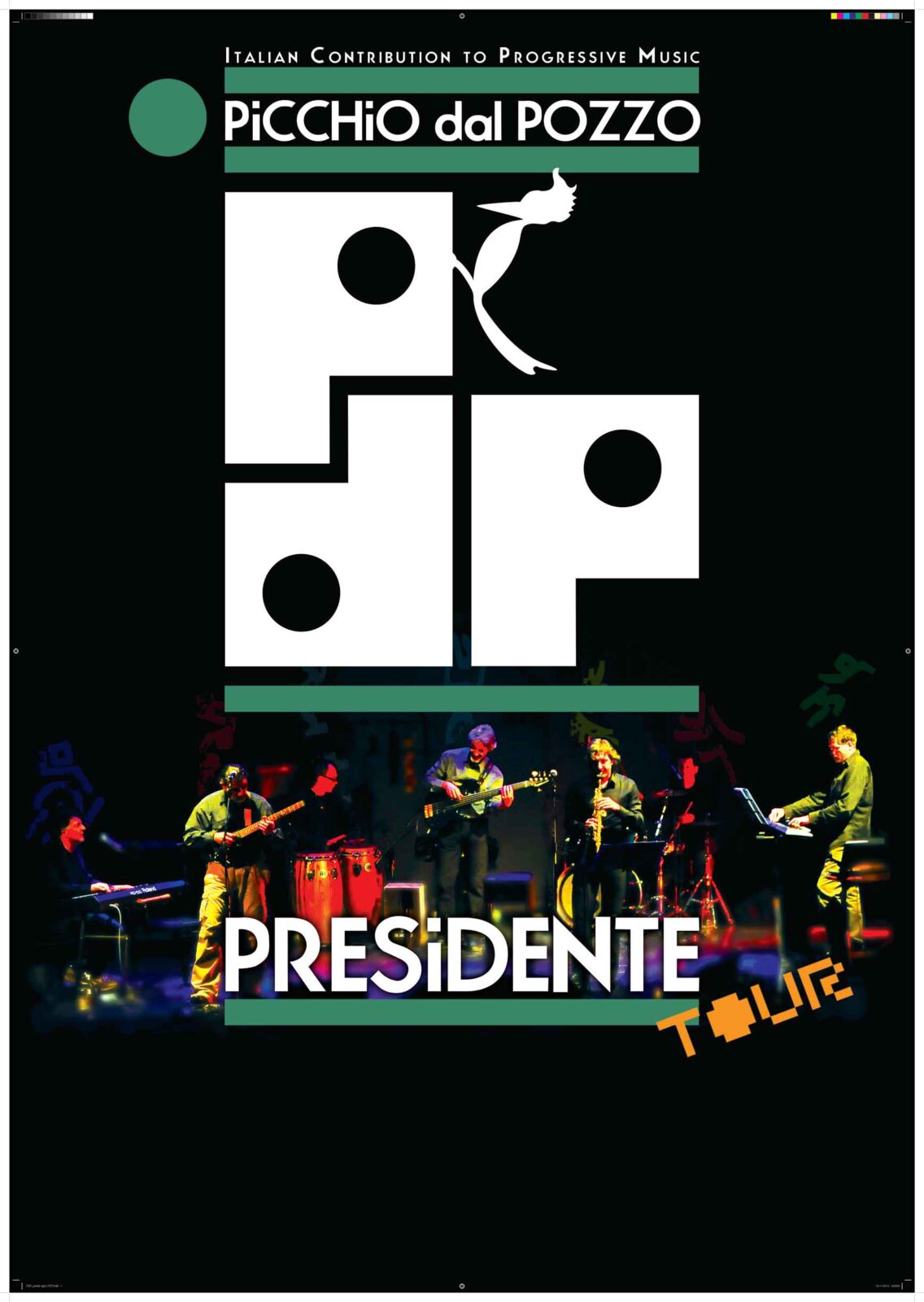
What happened next?
Well, we grow up and started to have the common “adults” problems: bills to pay, a place to live, a dog to feed. In 1980 we were 23 years old and the music scene changed drastically. Some of us started a “serious” job and only Aldo De Scalzi, Aldo Di Marco, Claudio Lugo and me continued on the steep path of music. Picchio dal Pozzo ended its activity officially in 1981. In fact we didn’t split, we only pushed unconsciously the pause button.
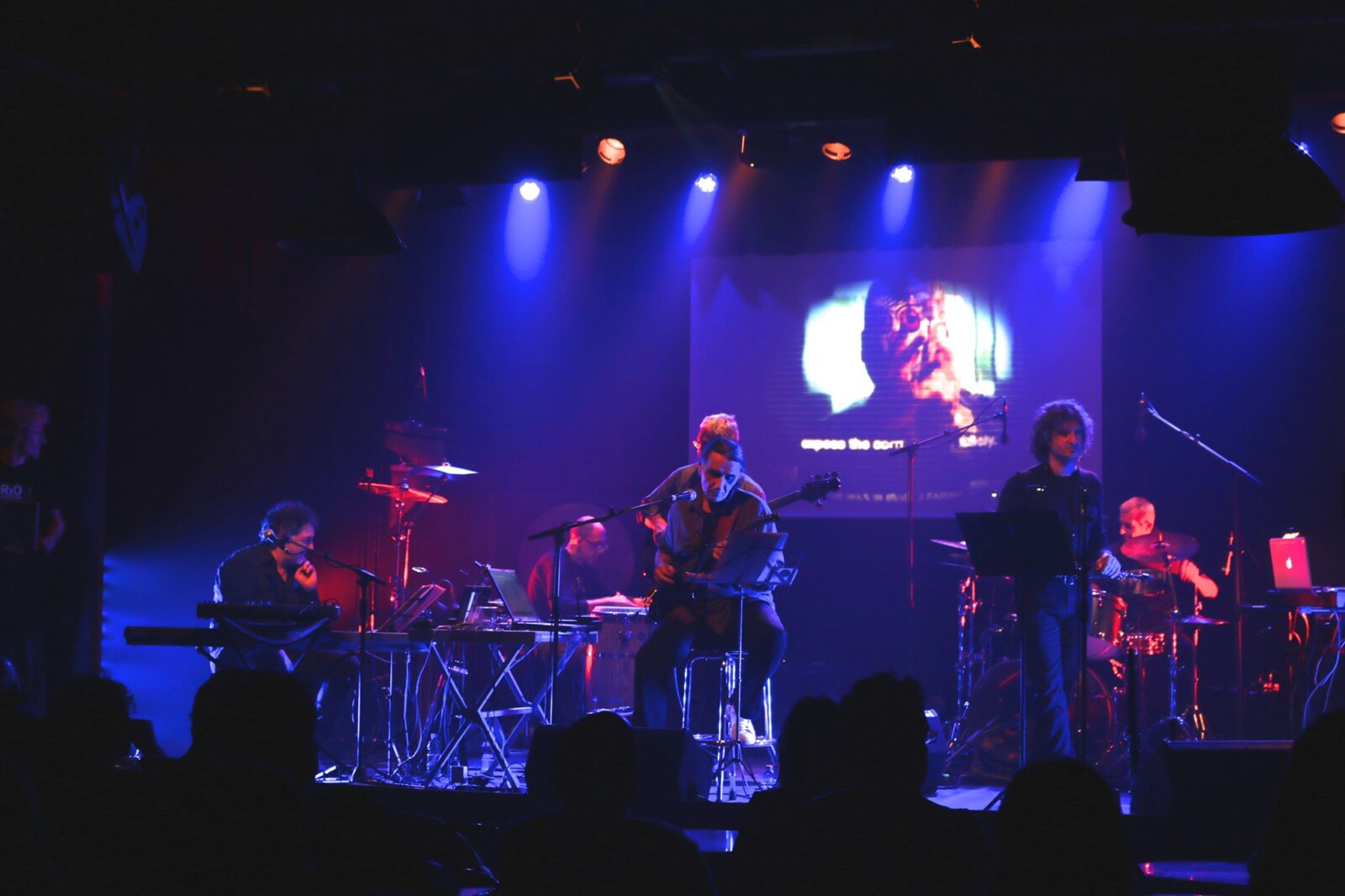
The band is still active and issued a live album in 2011.
Yes, let’s say the band is still active time to time, according to our personal commitments. In 2002 we recorded and released an album dedicated to Demetrio Stratos (Pic_nic@Valdapozzo).
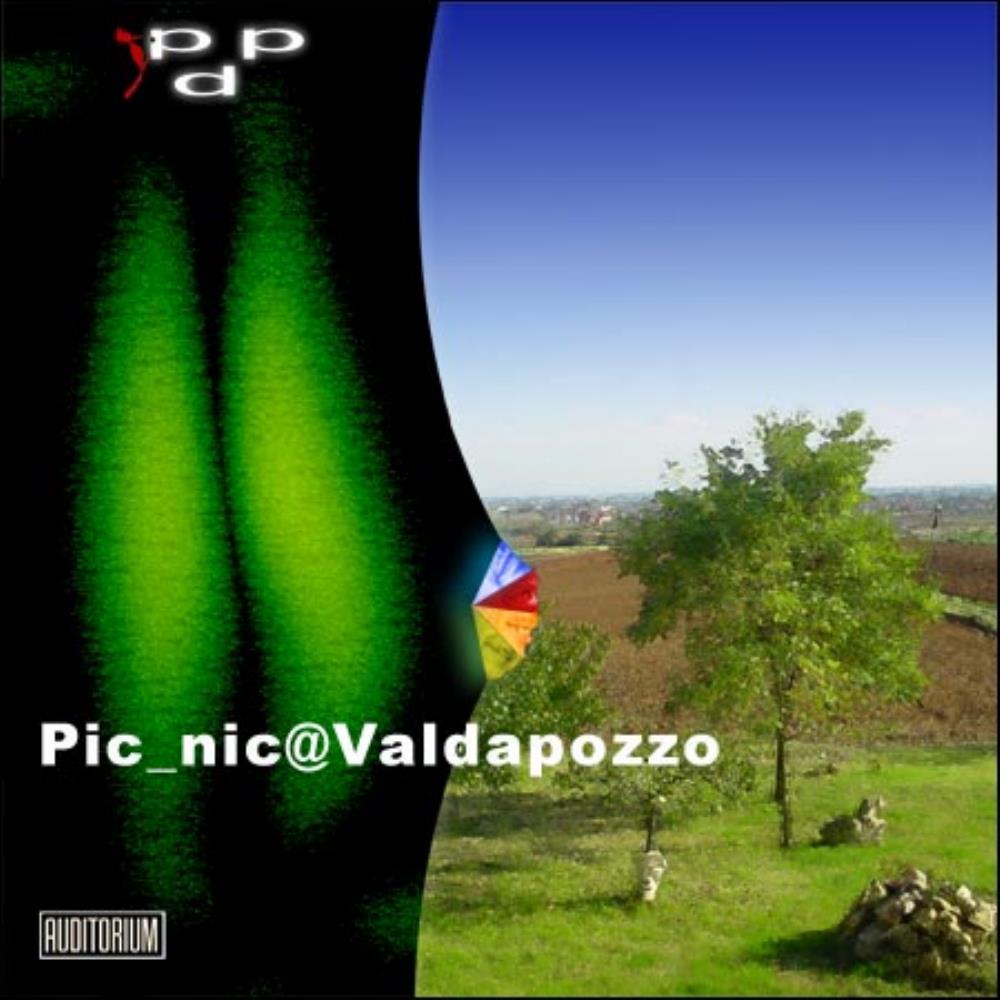
It has been a full-immersion week, living in a farm named Valdapozzo (destiny!) with a mobile recording equipment. We used some audio material of the voice of Demetrio with previous permit of Daniela, his wife. I consider it a very good album, an evolution of Picchio dal Pozzo’s prog, critics not of the same mind obviously. In 2011 Aldo De Scalzi, Aldo Di Marco and me played in Milan a Picchio dal Pozzo set with Yugen. The concert got recorded and published by AltrOck Recordings (A_Live).
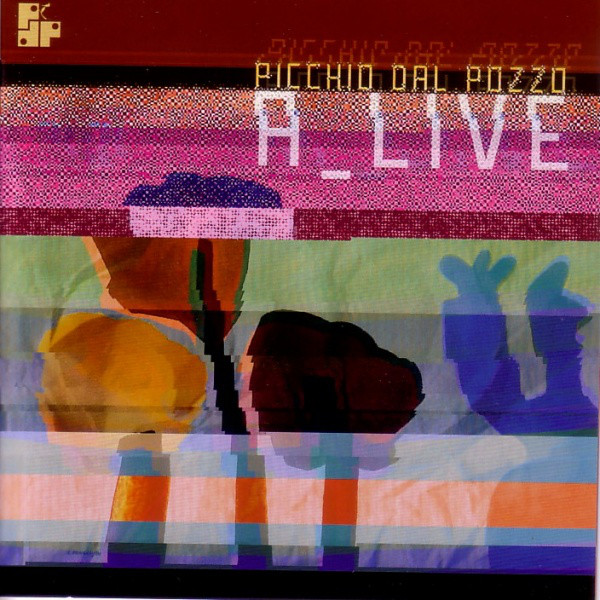
End of 2013 we received the official invitation for the RIO Festival Japan, so we decided to put together a new Picchio dal Pozzo setup with new musicians: Dado Sezzi (perc.), Luca Cesta (key), Massimo Tigona (bass), Edmondo Romano (winds). We did the first official concert in Genoa and published a DVD (Live).
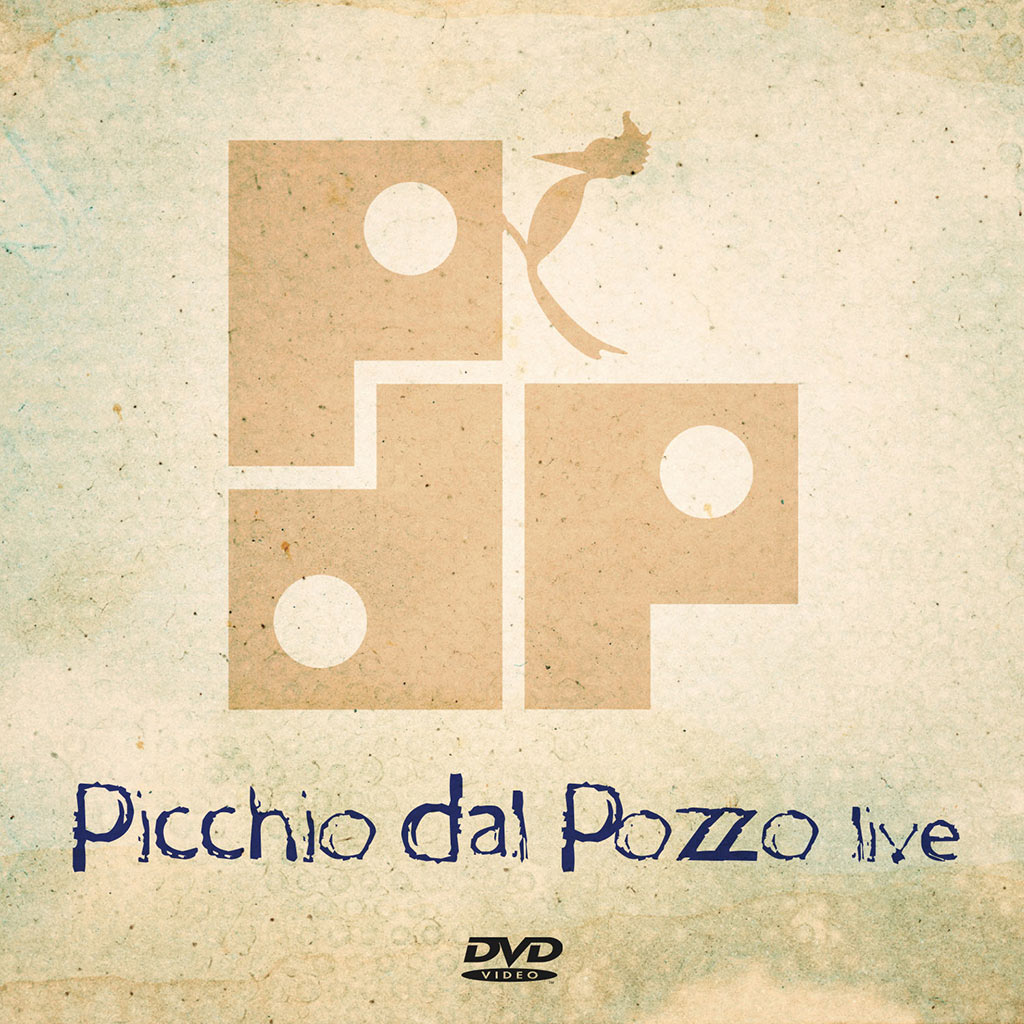
Italy had a very rich progressive rock scene. Would appreciate a longer commentary about it from your perspective.
The input came from rock and pop of the late ’60s. As I already said, the ’70s have been a creative decade. I think we could draw a parallel line with politics. In this scenario too, there was a huge ferment. Progressive became the music with a social and political message. In these years a lot of Italian youngsters were involved. They, or better we, wanted something more than drug sex and rock & roll, something more serious to invest our time and energy in. The particularly rich Italian prog scene was due to the fact, I think, that Italy is a very musical country with a long musical tradition together with the reality of these years.
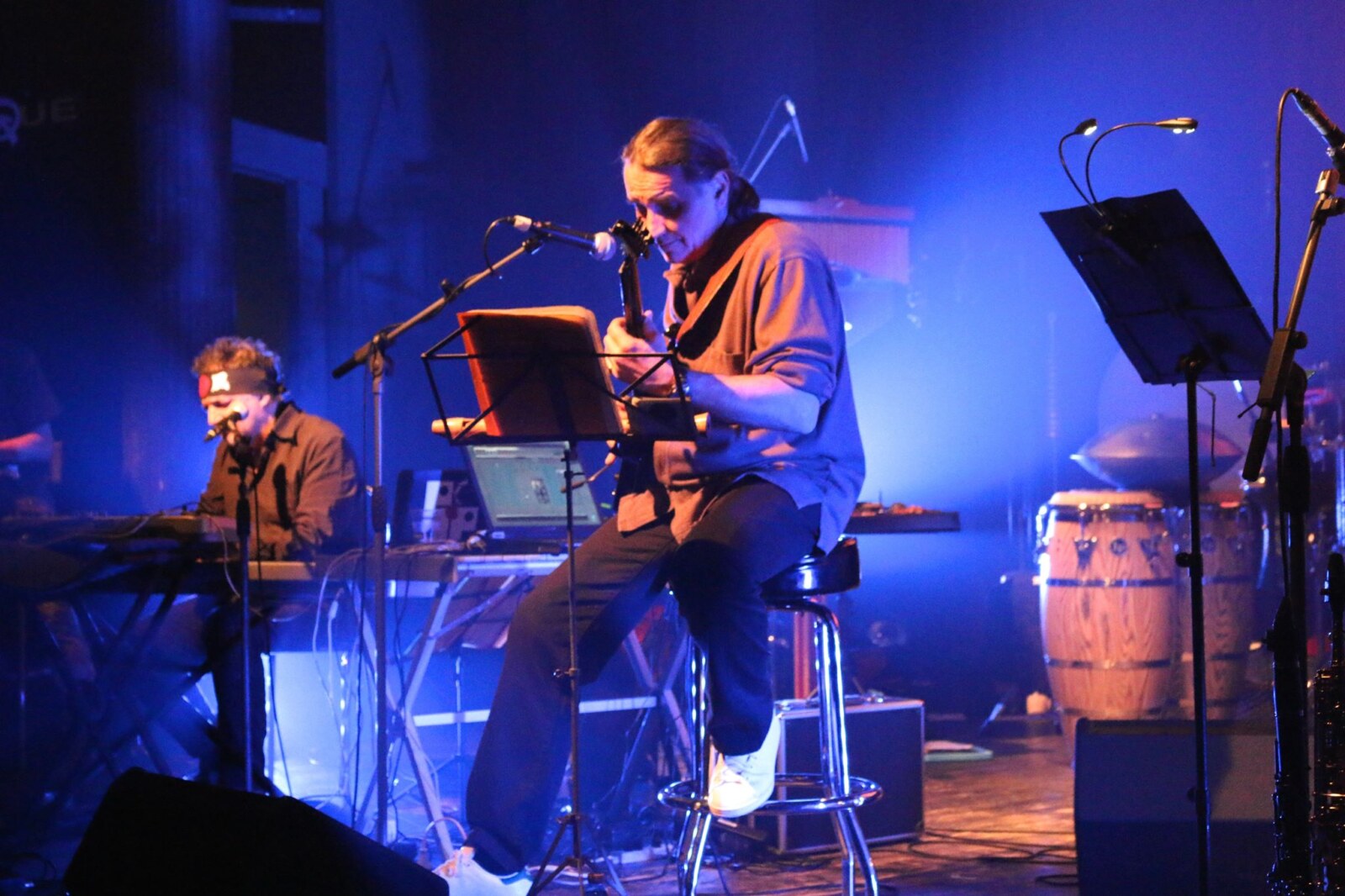
What currently occupies your life?
The answer is music of course. I write and produce music and in the last few years I got involved in video production too. A big project I’m setting up now, is an exhibition/showcase about Las Madres de Plaza de Mayo for collecting money for their activities; I was in Buenos Aires last April. In the meantime we started rehearsal with Picchio dal Pozzo, just these days, for some concerts in 2020, the debut in Milan the 15th of February; we play the whole first album like it is, very acrobatic!
My free time is occupied by voluntary activities with problematic children and persons affected by Alzheimer on my sailboat Baloo.
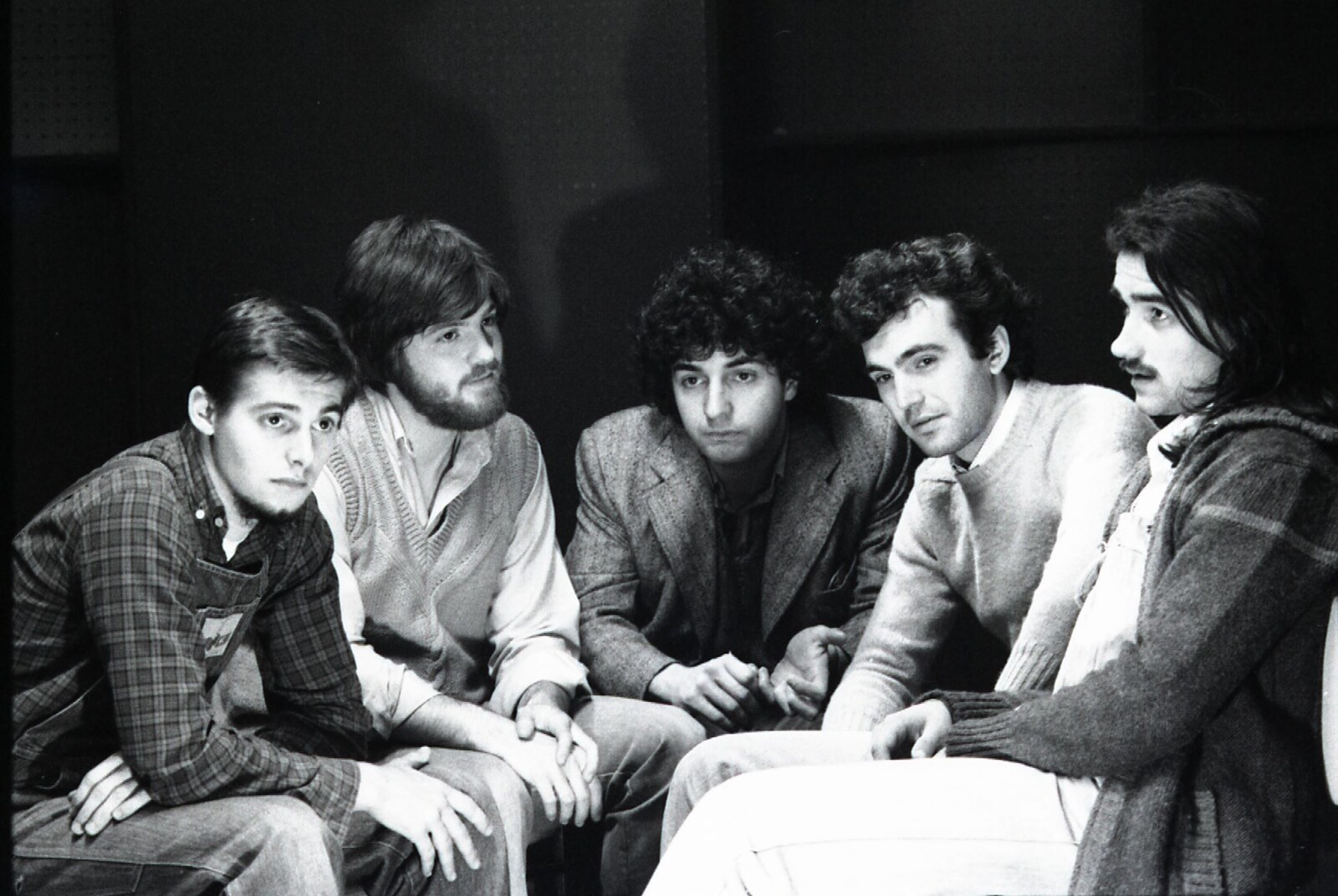
Thank you for taking your time. Last word is yours.
Oh, thank you for taking my time and I hope these won’t be my last words. Only one more thought about prog: my impression is that prog is becoming more and more a kind of love for vintage. My idea of music and generally art is tied with evolution. So, if progressive has to be vintage, buy the music sheets and play the “old authors” like they are, more or less like Bach or Mozart; other ways please give prog the chance to develop and have a future.
Thank you!
– Klemen Breznikar
Picchio dal Pozzo Official Website
Picchio dal Pozzo Facebook
Paolo Griguolo Official Website



